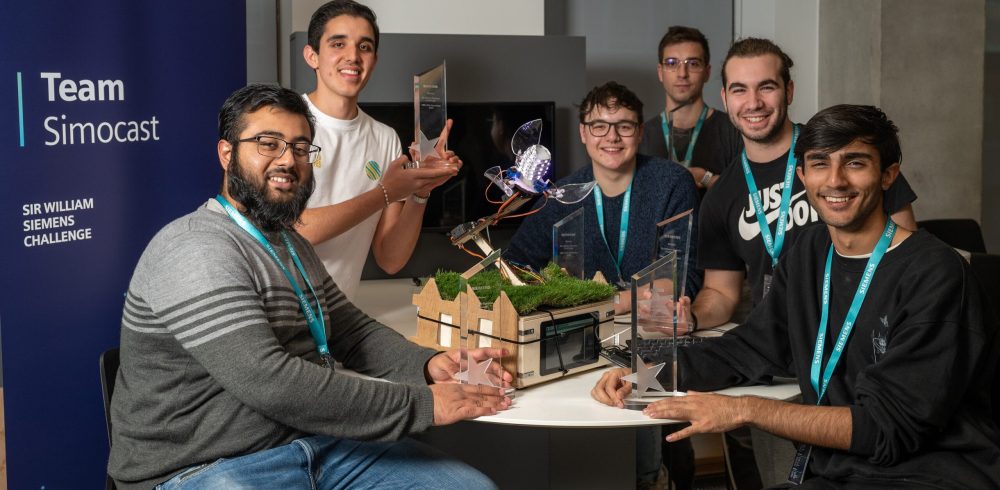Siemens has unearthed a pipeline of future talent through a 48-hour engineering hackathon. The Sir William Siemens Challenge has been designed to identify the emerging engineering talent from across the UK and give young people a taste of what it is to work for a leading technology company.
Held at the University of Birmingham, the competition brought together more than 70 students from 27 UK universities studying engineering, mechatronics, robotics or digital courses including computer science, cybersecurity, Artificial Intelligence, telecommunications or a related degree.
Multi-disciplined teams of seven were challenged to build and programme a unique mechanical/electrical device which brought to life data from Mindsphere, Siemens’ industrial cloud-based operating system.
The teams were given access to a huge assortment of kit packed full of essential materials and components, giving them the flexibility to build almost any tabletop device they could dream up. Such was the talent on show, Siemens offered 30 participants access to internship or graduate opportunities with Siemens’ Digital Industries, Smart Infrastructure and Mobility businesses.
The winners, Team Simocast, made up of Subhaan Hussain, Axel Gonzalez, George Edwards, Alexandru Spinu, Dumitru Mavris and Ayman Hussain, created a robotic flower with petals and an LED array that open and closed and changed colour in response to the temperature and levels of carbon monoxide and oxygen in the room.
Dumitru, 20, is originally from Bucharest and is studying BSc Computer Science at the University of Birmingham. He said: “As a computer science student it was amazing to interact with engineering disciplines and see my code come to life. The hackathon was a great experience and I would very much recommend it to any student.”
The runners-up were Team Vectron, featuring Ben Broadbent, Hannah Bentley, Shadi Madieh, Vedika Bedi, Alejandra Francisco and Waleed Hamad, created a miniature version of the competition space with model ‘people’ that lit up to represent increased footfall and carbon dioxide levels, an LED array which changed depending on carbon monoxide levels, and a rotating display to show the time of day.
Hannah, 23, from Beith, North Ayrshire, studying MSc Mechatronics and Automation, with Product Design Engineering at the University of Strathclyde. She said: “While it was intense it was great fun to work with a team from a variety of degrees and disciplines, and really put into practice the project management and design principles I have learned over my degree. It was great to be able to implement a plan and design so quickly and have a working device at the end. Overall, it was a very rewarding experience.”
Amelia Donaldson, Senior Talent Acquisition Specialist for Siemens, said: “Now in its fifth year the Sir William Siemens Challenge has become an extraordinary annual showcase of the engineering and digital talent emerging from UK universities. Having moved the competition online during the pandemic, we were delighted to return to an in-person event again. We are excited to be able to offer so many young people the opportunity to start their rewarding career with Siemens.”
Commenting on behalf of the judges, Colin Morris, Siemens Mobility’s Lead Development Engineering Manager, said: “The judges were blown away by the standard of the competition and the range of innovation on display throughout the weekend. There was a clear demonstration of adaptability, collaboration and problem-solving skills from across the teams. The winners stood out for excelling in the data-driven, engineering and creative elements.”
Manufacturing & Engineering Magazine | The Home of Manufacturing Industry News















